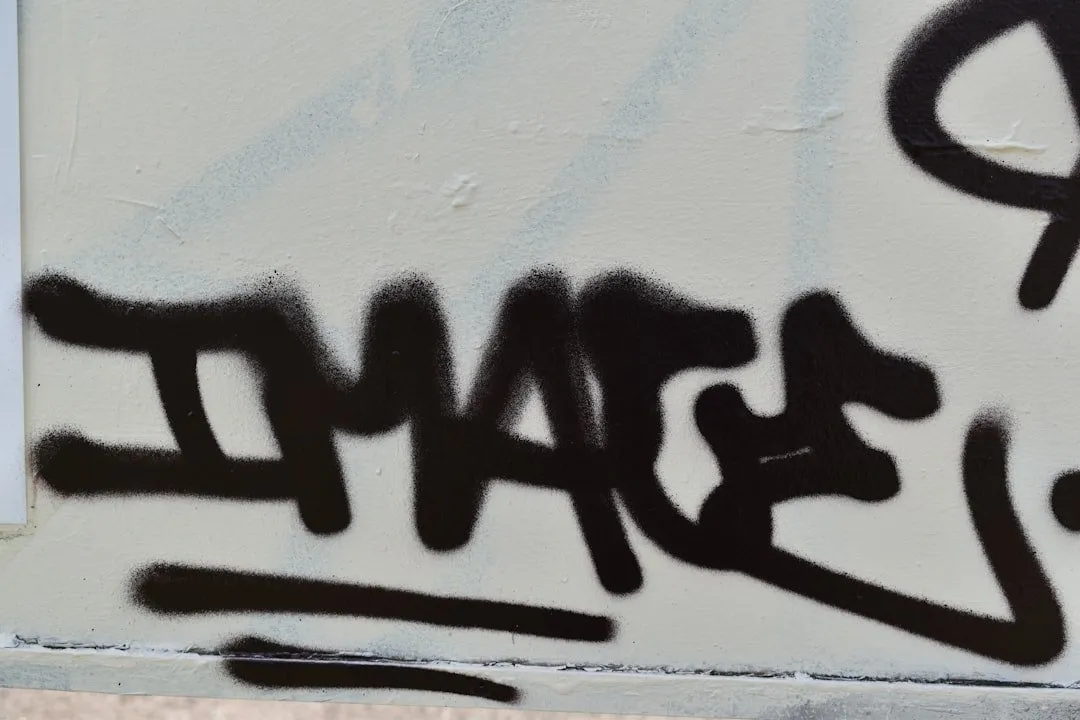Kratom Training: United Airlines’ Mental Toughness Strategy Implications
Mental toughness is crucial for aviation success, with United Airlines' kratom policy highlight…….
Welcome to an in-depth exploration of a unique and evolving policy within the aviation industry—the United Airlines Kratom Policy. This article aims to demystify a subject that has garnered significant attention, particularly among travelers and aviation enthusiasts. By delving into its history, impact, and future trajectory, we will uncover the intricacies of this policy and its implications on global travel, technology, and regulatory frameworks.
Kratom, a natural plant-based substance with both medicinal and psychoactive properties, has long been a subject of interest worldwide. United Airlines’ response to this trend by implementing a specific policy to address its transportation raises important questions about safety, health, and the role of aviation in modern society. This article will provide a comprehensive guide, ensuring readers understand not only the ‘what’ but also the ‘why’ and ‘how’ behind United Airlines’ Kratom Policy.
United Airlines Kratom Policy refers to the airline’s guidelines and regulations regarding the transport of kratom-related products and substances on its flights. This policy encompasses several key aspects:
Prohibited Items: United Airlines strictly prohibits the carriage of certain kratom species, extracts, and products that are considered controlled substances or have potential abusive uses. This includes raw kratom leaves in quantities exceeding personal use.
Prescription Requirements: For individuals seeking to transport kratom for medicinal purposes, a valid prescription from a licensed healthcare professional is mandatory. The policy specifies that the prescription must be presented at check-in and meet certain criteria.
Legal Compliance: United Airlines ensures adherence to local, state, and federal laws regarding the transportation of controlled substances. This varies across jurisdictions but generally aligns with international guidelines.
Safety Considerations: Safety is a primary concern for airlines. The policy incorporates measures to prevent the misuse or unauthorized distribution of kratom during flight.
The United Airlines Kratom Policy has evolved over time in response to changing societal attitudes, legal landscapes, and technological advancements. Initially, kratom’s illegal status worldwide led to stringent restrictions on its transportation. However, as public perception shifted, and with the growing recognition of kratom’s medicinal benefits, airlines began to adapt their policies. United Airlines’ current approach is a reflection of this evolving landscape, aiming to balance customer needs, safety, and legal obligations.
This policy holds significant importance for several reasons:
United Airlines’ Kratom Policy operates within a broader global context, with each country having its own regulations regarding kratom. This policy influences international travel by:
Several global trends are shaping the future of United Airlines’ Kratom Policy:
| Trend | Impact/Consideration |
|---|---|
| Legalization and Decriminalization: As more countries legalize kratom for medicinal or personal use, airlines must adapt their policies to accommodate these changes. | Flexibility: Policies should be adaptable to reflect local legal frameworks while maintaining safety standards. |
| Growing Awareness of Medicinal Kratom: Increased awareness of kratom’s potential health benefits is driving demand for access during travel. | Medicinal Access: Facilitating travel for individuals with valid prescriptions and ensuring a smooth process for such passengers. |
| Technological Advancements in Drug Testing: Improvements in drug-testing technologies can aid in identifying unauthorized substances, including some kratom forms. | Security: Airlines can leverage these technologies to enhance security while respecting privacy rights. |
| Global Travel Recovery: Post-pandemic travel recovery brings a renewed focus on customer satisfaction and understanding diverse traveler needs. | Customer-Centric Approach: Policies should be designed with the modern, diverse, and health-conscious traveler in mind. |
Different regions have distinct approaches to kratom regulation:
The global kratom market is a fascinating economic sector with unique characteristics:
The economic implications of United Airlines’ Kratom Policy extend beyond direct costs:
The policy’s economic impact is intertwined with broader aviation industry dynamics:
Technological innovations play a crucial role in shaping United Airlines’ Kratom Policy:
These technological advancements have a direct impact on policy enforcement:
The future holds exciting possibilities for technology integration:
United Airlines’ Kratom Policy is shaped by a web of local, national, and international laws:
The legislative landscape is dynamic, with constant debates shaping kratom policy:
Navigating the regulatory landscape presents several challenges:
The United Airlines Kratom Policy has faced several challenges and criticisms:
Addressing these challenges requires a multi-faceted approach:
Thailand, a major kratom producer, has embraced a unique approach by promoting ‘kratom tourism.’ This strategy allows travelers to visit kratom farms, learn about traditional uses, and purchase local products. United Airlines could explore partnerships with Thai operators to offer educational tours while ensuring responsible tourism practices.
Lessons Learned:
Canada has implemented a comprehensive program for the controlled distribution of medicinal kratom. This involves strict prescription requirements, licensed dispensaries, and regular government oversight. United Airlines has seen an increase in customers traveling to Canada for kratom-related medical treatments.
Key Takeaways:
The future of United Airlines’ Kratom Policy holds several promising avenues:
Several emerging trends will shape the policy’s evolution:
United Airlines’ Kratom Policy is a dynamic and complex aspect of the aviation industry, influenced by economic, technological, and regulatory forces. By navigating these challenges and adapting to emerging trends, United Airlines can offer a safe, secure, and customer-centric approach to kratom transportation while contributing to the development of this unique market.

Mental toughness, crucial for peak performance, has seen interest in kratom as a natural enhancer. D…….

Natural energy boosters like kratom have gained popularity as healthier alternatives to synthetic st…….

Red Borneo Kratom capsules offer pain relief, relaxation, and unique energizing/calming effects, but…….

White Vein Kratom Powder, known for its energizing and calming effects, is a popular variety from So…….

Kratom, a natural herb from Southeast Asia, enhances energy, focus, and endurance for athletes but i…….

Athletic recovery is a complex process that involves both physical and mental components. While vari…….

Personalized training plans, leveraging data and science, offer effective fitness approaches tailore…….

Kratom, a natural herb popular among athletes for its performance-enhancing properties, is restricte…….

Chronic pain management faces challenges with traditional methods, prompting interest in alternative…….

Personalized fitness training considers individual goals, lifestyle, and physical abilities, creatin…….

White Vein Kratom Powder, known for its pale veins and unique mitragynine profile, offers a balanced…….

Purple Vein Kratom capsules are a popular, convenient, and balanced kratom variety, ideal for users…….

United Airlines strictly prohibits raw kratom leaves and associated products as checked or carry-on…….

Muscle soreness after exercise results from microscopic tears in muscle fibers, leading to inflammat…….

Kratom, a Southeast Asian plant (Mitragyna speciosa), is recognized for its performance-enhancing pr…….

Endurance training strengthens cardiovascular health and mental focus, encouraging long-term investm…….

Endurance training improves cardiovascular health and overall fitness, enhancing stamina and reducin…….

Kratom, an herb from Southeast Asia (Mitragyna speciosa), has gained attention for its potential the…….

Chronic pain management has seen a natural alternative in kratom, with United Airlines updating its…….

United Airlines has implemented a strict no-kratom policy, prohibiting the herb Mitragyna speciosa (…….

Kratom, a natural herb from Southeast Asia, is gaining popularity among athletes and United Airlines…….

Kratom, derived from Mitragyna speciosa, is a natural herb gaining popularity for post-workout recov…….

Thai Kratom Powder, a natural pain reliever with diverse strains from regional cultivation, has glob…….

Inflammation, if persistent, can cause health issues, but kratom supplements show potential in manag…….

Kratom, a natural herb (Mitragyna speciosa) from Southeast Asia, is gaining popularity for stress an…….

Kratom, a Southeast Asian tropical plant (Mitragyna speciosa), offers natural pain management withou…….

Chronic Fatigue Syndrome (CFS) patients seeking alternative treatments have turned to Kratom, a natu…….

Inflammation can cause health issues, but modern lifestyles often lead to chronic inflammation. Krat…….

Kratom (Mitragyna speciosa), a Southeast Asian herb, is gaining popularity among athletes for its pe…….

Kratom, derived from the Mitragyna speciosa tree, is gaining popularity as an alternative aid for ad…….

Mental clarity and focus are key to athletic performance, aided by natural supplements like kratom,…….

Kratom, derived from the plant Mitragyna speciosa, is a subject of interest in addiction treatment d…….

Yellow Vein Kratom Powder, popular among travelers due to its unique energizing and relaxing effects…….

Kratom, a Southeast Asian herb (Mitragyna speciosa), has gained attention for its potential performa…….

Endurance training improves physical and mental well-being, and some athletes turn to kratom supplem…….

Kratom, a Southeast Asian plant with alkaloids interacting with opioid receptors, offers stress and…….

Kratom, a Southeast Asian herb, is gaining popularity as a natural stress and anxiety reliever due t…….

Purple Vein Kratom capsules, derived from the Mitragyna speciosa plant native to Southeast Asia, hav…….

Chronic pain, a global issue with diverse causes, has seen an alternative treatment surge thanks to…….

Natural energy booster kratom (Mitragyna speciosa) is a popular alternative to synthetic stimulants…….

Stress and anxiety are global health issues recognized by the WHO, affecting millions in the U.S. Kr…….

United Airlines has updated its policy to allow passengers to travel with Kratom, a natural herb der…….

Mental fog, a common athletic performance hurdle linked to training, diet, sleep, and environment, c…….

Stress and anxiety are global issues impacting daily life, with chronic stress linked to health prob…….